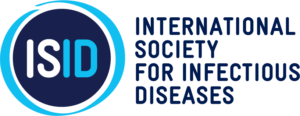World Antimicrobial Awareness Week (WAAW) is celebrated from 18 to 24 November every year to raise awareness about antimicrobial resistance (AMR) and to promote best practices to reduce the emergence and spread of drug-resistant infections. On June 6 2023, the Food and Agriculture Organization of the United Nations (FAO), the United Nations Environment Programme (UNEP), the World Health Organization (WHO), and the World Organisation for Animal Health (WOAH) announced that WAAW will be rebranded as World AMR Awareness Week. The theme for WAAW 2023 is "Preventing antimicrobial resistance together" which calls for cross-sectional collaboration to preserve the effectiveness of antimicrobials.
According to the WHO, rational use of medicines requires that "patients receive medications appropriate to their clinical needs, in doses that meet their own individual requirements, for an adequate period of time, and at the lowest cost to them and their community”. Since the discovery of penicillin by Sir Alexander Fleming in 1928, antimicrobials have been considered miracle drugs because of their ability to treat deadly infections which were a major cause of mortality. Over the years, this notion of antimicrobials as miracle drugs has resulted in their overuse or rather abuse. Some of the key factors contributing to the irrational use of antimicrobials include lack of awareness and education on antimicrobial use among the public, inadequate training of healthcare professionals on rational antimicrobial use, poor communication between patients and healthcare professionals, patient demand, and push from pharmaceutical companies.
Pharmacists have a very important role to play in any healthcare setting as they are much easier to access compared to doctors thereby making them the first contact for the patient in many instances. They also act as a link between patients and doctors. Some of the key areas where pharmacists can contribute to the rational use of antimicrobials include:
- Dispensing antimicrobials only on a valid prescription- Pharmacists should ensure that the prescription is written and signed by a registered medical practitioner, is dated, and all details of antimicrobials including the name of the antimicrobial, dose, frequency, route, duration are present.
- Patient counselling on appropriate antimicrobial use- Pharmacists should educate patients on the indication of the antimicrobial prescribed, direction for use, any potential adverse drug reaction, drug-drug or drug-food interactions, contraindications, directions for use etc. In addition to providing this information verbally, leaflets or pamphlets could also be utilized.
- Promoting antimicrobial adherence- Pharmacists should make the patients aware of the importance of completing the prescribed course of antimicrobial therapy to ensure a complete cure of infection, to avoid potential re-infection and unnecessary cost of therapy.
- Minimising medication errors- Pharmacists can minimize medication errors by double-checking the prescription and ensuring that the right medication is being dispensed and administered. They also need to be vigilant about sound-alike and look-alike medicines and can also keep a list of potential errors to prevent them from occurring.
- Audit of antimicrobial use- Pharmacists can also conduct audits of medication use such as on antimicrobial appropriateness, antimicrobial consumption etc. Their findings should also be discussed with the prescribers to ensure that antimicrobial use is more rational in future.
- Education of Healthcare professionals- Pharmacists can provide education on rational antimicrobial use to doctors, nurse and students. This can be through didactic lectures or on a case-to-case basis. They can also prepare posters on rational antimicrobial use which can be displayed outside the pharmacy, in the patient wards, patients/ carers waiting areas in hospital etc.
Antimicrobial Stewardship (AMS) programs have been recognized as one of the key strategies in rationalizing the use of antimicrobials worldwide. AMS refers to coordinated interventions designed to improve and measure the appropriate use of antimicrobial agents by promoting the selection of the optimal antimicrobial drug regimen including dosing, duration of therapy, and route of administration. Guidelines from around the globe endorse the key role played by pharmacists in AMS however the extent to which they participate in the program differs between countries. Evidence of pharmacist-led or driven AMS interventions has predominantly been reported from high-income countries with gradually emerging data from other income settings. There needs to be a concerted effort in facilitating pharmacists' roles in AMS across all countries, irrespective of income setting.
Written by ISID Emerging Leader, Dr. Vrinda Nampoothiri
PhD scholar
Amrita Institute of Medical Sciences
Amrita Vishwa Vidyapeetham
Kochi, Kerala, India
